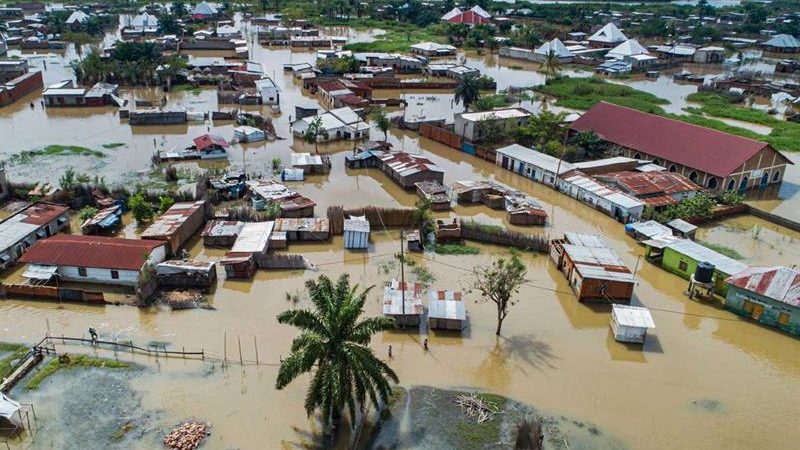
Mogadishu, Somalia – The United Nations Office for the Coordination of Humanitarian Affairs (OCHA) has raised alarms over the severe weather conditions affecting East Africa, with a particular focus on the impact of spring rains in Somalia.
According to OCHA’s latest weekly report, the period from April to June is expected to witness an increase in rainfall, posing significant risks of life-threatening floods and extensive property damage. Since April 19, Somalia has experienced devastating flooding, particularly in its southern regions, prompting urgent humanitarian responses.
The situation extends beyond Somalia, with neighboring countries also grappling with unprecedented weather challenges. Tanzania has reported 155 fatalities and 236 injuries due to floods and landslides, as confirmed by the Prime Minister’s office. Kenya mourns the loss of 35 lives due to ongoing floods, while in Burundi, relentless rains have displaced nearly 96,000 individuals.
Uganda has not been spared, with violent storms leading to river overflows, resulting in two confirmed deaths and injuries to hundreds. In a shocking incident in Nigeria, heavy rainfall facilitated the escape of over 100 inmates from a prison near Abuja after parts of the facility were destroyed.
The situation is equally grave in Nigeria, where climate change has made extreme rainfall events “about 80 times more likely,” resulting in deadly flooding that has killed over 800 people and displaced 1.3 million. The country is still reeling from the most devastating floods in a decade, with significant damage to farmland and infrastructure.
Dubai, known for its arid climate, has also experienced record-breaking floods. A rare weather event caused by a “cut off” low pressure system resulted in more than double the annual expected rainfall in just one day. While cloud seeding has been used in the UAE to address water shortages, it did not play a role in the recent extreme downpours.
The global pattern of increasingly intense rainy seasons is consistent with climate change predictions. Warmer air can hold more moisture, leading to more potent storms and flooding. This trend is expected to continue if greenhouse gas emissions remain unchecked, with potentially catastrophic consequences for vulnerable regions around the world.
In Somalia, the spring rains have already caused severe flooding, leading to significant loss of livelihood and property. The Somalia National Disaster Agency (SoDMA) is distributing aid and making preparations, but the full impact of the floods is yet to be seen.
The international community is urged to support the affected regions as they brace for potentially catastrophic weather conditions in the coming months.
_____________________________________________________________________________________Xafiiska Wararka Qaranimo Online | Mogadishu, Somalia
_____________________________________________________________________________________Advertisement
_____________________________________________________________________________________







